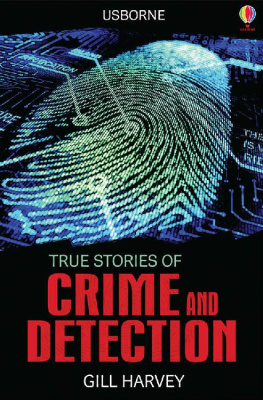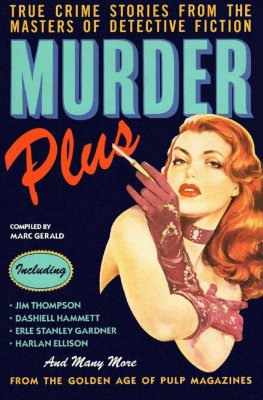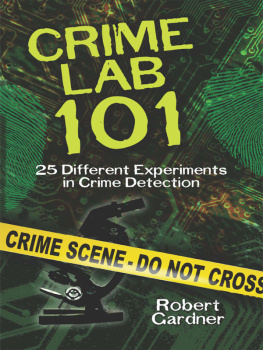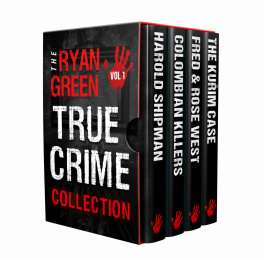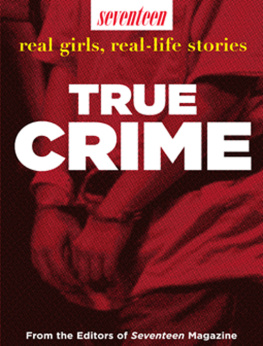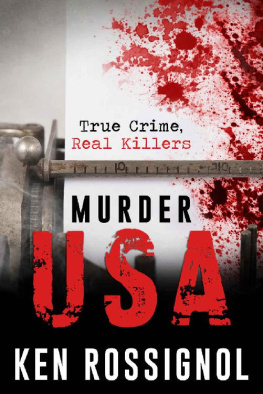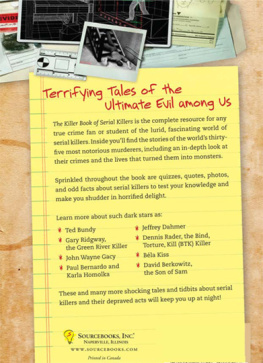Gill Harvey - True Stories of Crime and Detection: Usborne True Stories
Here you can read online Gill Harvey - True Stories of Crime and Detection: Usborne True Stories full text of the book (entire story) in english for free. Download pdf and epub, get meaning, cover and reviews about this ebook. year: 2013, publisher: Usborne Publishing Ltd, genre: Detective and thriller. Description of the work, (preface) as well as reviews are available. Best literature library LitArk.com created for fans of good reading and offers a wide selection of genres:
Romance novel
Science fiction
Adventure
Detective
Science
History
Home and family
Prose
Art
Politics
Computer
Non-fiction
Religion
Business
Children
Humor
Choose a favorite category and find really read worthwhile books. Enjoy immersion in the world of imagination, feel the emotions of the characters or learn something new for yourself, make an fascinating discovery.
- Book:True Stories of Crime and Detection: Usborne True Stories
- Author:
- Publisher:Usborne Publishing Ltd
- Genre:
- Year:2013
- Rating:3 / 5
- Favourites:Add to favourites
- Your mark:
- 60
- 1
- 2
- 3
- 4
- 5
True Stories of Crime and Detection: Usborne True Stories: summary, description and annotation
We offer to read an annotation, description, summary or preface (depends on what the author of the book "True Stories of Crime and Detection: Usborne True Stories" wrote himself). If you haven't found the necessary information about the book — write in the comments, we will try to find it.
Gill Harvey: author's other books
Who wrote True Stories of Crime and Detection: Usborne True Stories? Find out the surname, the name of the author of the book and a list of all author's works by series.
True Stories of Crime and Detection: Usborne True Stories — read online for free the complete book (whole text) full work
Below is the text of the book, divided by pages. System saving the place of the last page read, allows you to conveniently read the book "True Stories of Crime and Detection: Usborne True Stories" online for free, without having to search again every time where you left off. Put a bookmark, and you can go to the page where you finished reading at any time.
Font size:
Interval:
Bookmark:
Are real criminals and detectives anything like the ones you see on the television or read about in novels? You can find out in these ten exciting stories. Serial murderers, art forgers, kidnappers, robbers, runaways and forensic scientists are all here, as well as cases of real-life horror that will chill you to the bone.

The greatest detective of them all! The story of the extraordinary hot-headed criminal who became the father of detection in 19th-century France.
An old woman has disappeared without trace or has she? John George Haigh thinks so. But his gruesome acid bath has let him down.
If you cant beat the critics, fool them! The amazing story of Han van Meegeren, the artist who faked his way to fortune.
A patch of grease, a missing tooth vital clues for Edward Oscar Heinrich, a legend of forensic science here solving two of his greatest cases.
So many witnesses couldnt be wrong or could they? A tragic tale of how an innocent man got caught up in the criminal system.
In northern England, a vicious murderer strikes again and again for years! Why is the police investigation getting nowhere?
All doctors have patients that die, and Dr. Harold Shipman was no exception. But he was certainly exceptional in quite a different way
When the grandson of the richest man in America goes missing, many believe he has staged his own kidnap. Then a gruesome package shows otherwise
Ronnie Biggs, one of the Great Train Robbers, shows how to spend a lifetime evading the hand of the law.
Crime is as old as human beings. Every society has rules about how to behave, and there are always some people who decide to break them. As a result, there have been police forces, courtrooms and judges since the days of ancient civilizations. But, strange as it may seem, there havent always been detectives. No one thought of using specialist skills for tracking down criminals until early in the 19th century. Then, it took just one extraordinary French criminal to change everything. His name was Jean-Franois Vidocq.
Vidocq was never a bad man. He wasnt the sort to rob unsuspecting people, or murder innocent men. But when he was young he was full of high spirits, and this often got him into trouble. He loved the high life: fencing, gambling, and fighting with other men over women. He adopted daring disguises and, for a while, he even claimed (falsely) to be a captain in the army. Sooner or later, he was bound to get arrested and sure enough, after one particular brawl, that is exactly what happened.
Vidocq was sent to jail for three months. It was just a local jail, and he would have been fine if he had minded his own business. But that wasnt Vidocqs way. He felt sorry for a peasant who had been wrongly convicted, and helped some other prisoners to forge a letter of release, granting the peasant his freedom.
The trick worked at first. The peasant was released, but it didnt take long for the authorities to work out what had happened. Forgery was a serious crime, and this time, in 1798, Vidocq was sent to the galleys.
The galleys were terrible places, designed to punish the most hardened criminals. Prisoners were kept in squalid conditions, chained together, and were forced to do backbreaking physical work on a diet of slops. If they didnt obey, they were beaten viciously. Many didnt survive the experience, and, with a sentence of eight years, Vidocq knew he had a simple choice: escape or die.
Escaping the galleys was no easy task, however. In fact, it was almost impossible. But Vidocq was clever and determined. Gradually, he smuggled in parts of a sailors uniform, and used a file to cut through his chains. Then, one day, as the chained men marched through the town, Vidocq slipped away to freedom.
But his freedom didnt last for long. He had no papers, and a year later he was recognized as an escapee from the galleys. So, in 1799, he was sent back this time for sixteen years. He felt desperate, but set to work on a plan for escape once again. It wasnt long before he managed to get hold of another sailors disguise, and bribed a guard to give him removable chains. He awaited his chance, and took it boldly just as hed done the last time. Leaving the town wasnt easy without papers, but Vidocqs craftiness came to the rescue. He pretended to join a funeral, and marched solemnly with the other mourners to the cemetery outside the city gates. Then, he walked free again.
So, at the age of only twenty-three, Vidocq was famous among criminals. It was impressive to escape the galleys once but twice! This was almost beyond belief, and his fellow criminals regarded him as a hero. But this didnt make his life any easier. The authorities were still hunting for him, and it was difficult to survive without falling deeper into a life of crime.
Sure enough, trouble wasnt far off. He joined up with a group of violent robbers for protection, but when he refused to work with them, they betrayed him. To his dismay, he was soon back in the hands of the authorities in the French town of Lyons.
But this time, something changed. The chief of police, a man named Monsieur Dubois, could see that Vidocq was made of unusual stuff. He offered him a choice.
You can go back to the galleys, he told Vidocq. Or you can give me the names of some of your criminal friends.
For Vidocq, the choice was easy. He had no great love of being a criminal he had never done anything badly wrong. And he certainly didnt want to go back to the galleys. He gave M. Dubois the information he wanted.
Technically, though, Vidocq was still a criminal. M. Dubois might have released him for now, but he still had the conviction for forgery hanging over him. And he was constantly meeting fellow criminals who wanted to involve him in their activities. Vidocq was fed up with the whole situation, and so he devised a plan. If he wanted to make a fresh start, he would need a pardon for his previous crime so that he was no longer a wanted man. And so, in exchange for a full pardon for the forgery, and protection from the police, he moved to Paris and became a secret informer on a regular basis.
Being an informer was an ideal role for Vidocq. He hadnt lost his knack for disguises, and the criminal underworld trusted him. After all, he was one of them, wasnt he? Before long, he was giving the police more information than they could have dreamed possible and the criminals themselves had no idea how the police knew so much. Vidocq was enjoying himself. He was free at last, and hed found a career.
Whatever he did, Vidocq did with passion, commitment and ingenuity. It wasnt enough for him to pass on casually what he knew; before long, he was actually using his genius to hunt down criminals. The informer became a detective the first the world had ever seen.
On a personal level, Vidocq was not only the first, but probably the greatest, detective too. He continued to use disguises throughout his life the same ones, for years and years; but no one ever saw through them. He sometimes went around as an old man called Jean-Louis, a Breton who dealt in stolen goods. At other times, he was Jules, a bearded war veteran with a limp. When he adopted these disguises, he changed everything: the way he spoke, the way he looked, even the way he ate. He understood one of the most important principles of detective work attention to detail.
By 1811, his work was so successful that he was employing other agents to help him. They were all ex-criminals like himself, because Vidocq claimed that only they had enough knowledge to infiltrate the underworld; and besides, it was only them that he fully trusted. And he pestered the police to give him his own special department, which would be responsible for tracking down crime across the entire city of Paris. In 1812, he got his way at last. He established the Sret, the worlds first secret security service.
Font size:
Interval:
Bookmark:
Similar books «True Stories of Crime and Detection: Usborne True Stories»
Look at similar books to True Stories of Crime and Detection: Usborne True Stories. We have selected literature similar in name and meaning in the hope of providing readers with more options to find new, interesting, not yet read works.
Discussion, reviews of the book True Stories of Crime and Detection: Usborne True Stories and just readers' own opinions. Leave your comments, write what you think about the work, its meaning or the main characters. Specify what exactly you liked and what you didn't like, and why you think so.

